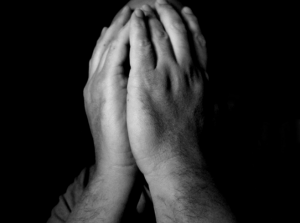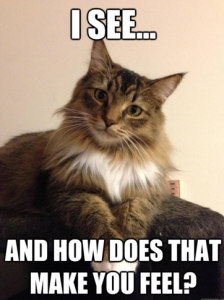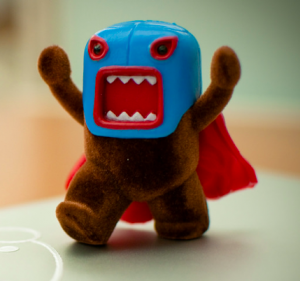I read a ridiculous amount of novels and I’m very picky, namely because I have the attention span of a fruit fly with a crack habit. Like most modern readers, it takes a lot to grab then keep my attention.
Most books I end up putting down or returning to Audible for another. There are books I finish then forget. Most are meh. Good way to kill time not much more. But then there are the ones that stick, the stories I never grow tired of reading and rereading and recommending and as you can see, I have very eclectic taste.
Some of my fondest loves are Heart-Shaped Box, Big, Little Lies, American Gods, Prisoner of Hell Gate, The Joy Luck Club, Luckiest Girl Alive, the Harry Bosch series by Michael Connelly, The Lincoln Lawyer, and anything written by Fredik Backman Britt Marie Was Here being my favorite.
Yet what do all these great stories have in common? Why do they make me laugh and cry and cheer? What is so cathartic about these books?
Shame.
Deep, profound, gut-wrenching and very identifiable shame.
The content of this blog is actually from a guest post I did for Rachel Thompson. But I think it’s a valuable lesson, especially for the new writers who haven’t yet developed the rhino skin to dare to be vulnerable themselves, let alone with their characters.
So I shall go first….
Back in 2002 when I finally made the decision to become a novelist, I had no idea what kind of a personal journey I’d signed up for. In fact that could make an entire book—okay series of books—in and of itself.
When I started writing I was not a very nice person (and that’s putting it mildly). I was angry, self-centered, bitter, undisciplined, and immature. But I did have great hair so it wasn’t a total loss.
In short? I was a jerk.
Often though, the trouble with jerks is they are the only ones unaware they are jerks. Kind of like that movie The Sixth Sense.
I see jerks. Everywhere. Walking around like regular people. They don’t see each other. They only see what they want to see. They don’t know they’re a jerk.
Yeah, that was me. It was everyone else. Everyone else was responsible for ***insert emotion/problem/drama here***.
And maybe this isn’t a very useful post for you because you’re all wonderful, perfectly adjusted individuals who rescue kittens when you’re not knitting onesies for cold baby goats. But maybe what I have to say today can help…a friend 😉 .
Shame
I did not come from a healthy family. Scratch that. I was born in The Jerry Springer Show Reality TV Edition. As a kid I didn’t know it was not normal to have screaming fights lasting hours every day. That sane people didn’t kick in doors, throw things or constantly threaten a) abandonment b) suicide c) divorce.
As a kid, I only partially grasped why I wasn’t allowed to play with other kids in the neighborhood. I was a straight A student and a teacher’s dream pupil…but every parent on the street walled their kid off from me like I carried Ebola.
Eventually my parents divorced and my father decided it would be fun to just you know, disappear for two years without so much as a word as to whether he was even alive. Child support?
That’s funny.
My poor mom did the best that she could, but by the time I hit middle school we lived on spaghetti because it was cheap and lived in unending fear the power would be cut off. I wore thrift store clothes and Toys for Tots supplied my Christmas gifts.
I got bounced home to home and in the process switched schools a total of ten times; five times just in high school. And it was strange. It was like every school came standard with a gaggle of Queen Bees WASPs ready to skewer me with their stingers over and over and over.
What was even worse were the teachers (probably Queen WASPs in their high school heydays) who joined in the “fun” of tearing me apart. In fact, I had nightmares about one particular teacher well into my 30s.
No place. No person was safe.
The harder I tried to appease the WASPs in school and home, the more I was stung. I was a bleeding ruined wreck.
I’m fairly certain to this day that I am the reason for the current Texas truancy laws. I’d skip and take refuge in the library. Books didn’t care that I only owned two pairs of pants and four shirts.
Eventually, I dropped out of high school…twice.
The only thing that kept me from getting a GED and being done with it was I’d always wanted to be in the military. I longed for structure and order and hell I was used to being yelled at and called worthless. Perfect fit!
But, in the 90s, you couldn’t get into the military without an actual high school diploma, so groans I had to go back. I was nineteen years old in an English class of fourteen-year-olds. Talk about a slice of humble pie.
Yet, to survive, I learned two key defense mechanisms. One, I became funny. Being funny works, it’s sort of like peeing yourself so no one eats you. High five! My possum friend! But when funny wouldn’t work? I became MEAN.
I’d always wanted to be a writer from the time I hadn’t even nailed down the entire alphabet song. I was good with words and after years of using them to flatter and pacify? I realized that didn’t work on bullies.
So I whipped out my whetstone and sharpened my words to a razor’s edge that rivaled any Samurai sword.
I truly believe that those who are born to be writers—good writers—have an almost preternatural power for observation. We very literally see what others don’t or even can’t. This meant I could meet a person (enemy) and instantly know every perfect pain point.
Thus, when I went for someone, I didn’t waste time. I went for their heart, for the thing they thought they’d buried so deep, hidden where no one could see.
And I’d carve it out and show it to them—still beating—in my hand.
If my tormenters were unwilling like me, they would by God fear me.
Of course while this worked to make the WASPs keep a nice and respectful distance, it also isolated me. Regular, nice people also were afraid of me and in my mind? I didn’t care. Being alone was safer. People always left anyway. Best not to care.
So why am I talking about all of this other than hey, FREE THERAPY!
When I became a writer and my goal was to become a novelist, I had to face who I’d become. Being a jerk made me a lousy writer.
My first novel (which of course I thought was perfect) sucked. But why was it so bad? Okay that is actually a loooooong list. But the main reason is that all my characters were “perfect.”
They were everything I had always wanted to be. My MC was tall and beautiful and eerily resembled Angelina Jolie and she had mad fighting skills and spoke 42 languages and Zzzzzzzzzzz.
Over and over I tried new stories and same deal. Why were all my stories boring the paint off the walls?
The reason? All great stories are birthed from SHAME.
I finally understood that I’d fashioned so much armor around myself cobbled together with self-delusion, B.S. glitter and flat out lies, that I couldn’t be vulnerable. I didn’t know how to be.
Until I acknowledged I was a jerk, I couldn’t start understanding WHY I was a jerk so I could heal those parts and then…change.
I didn’t know I was a jerk because I was deeply and profoundly ashamed.
Fiction as Therapy
To be a great author, we must understand this core truth…
Readers don’t connect to perfection; they connect to flaws. We aren’t telling stories to perfect people, we are telling them to lost and broken and hurting people who can pick up a book and by GOD at least there is one frigging place in the world where the good guy wins and bad people get what they deserve.
We writers must understand who we really are if we want to resonate with readers.
Writers are dealers of justice.
Because here’s the deal. We live in reality where the popular girl who tormented the poor kids in high school didn’t get what she deserved and never will.
No. She married rich. Then as a “stay at home mom”—with a full-time housekeeper and au pair—went on to start a home-based company selling non-GMO organic vegan nail decorations made from fair trade coconut oil.
And she made millions, because of course she did!
She spends every Spring Break in Vail, summers in Europe, and never loses one moment of sleep over the young girls she emotionally ravaged, has not a singular care for the self-esteems she plundered. She doesn’t even recall her victim’s names just hopes the pathetic little lemmings buy her nail wraps.
We all know villains like her exist in real life, certainly did in mine. And in real life, she gets away with her crimes…but in fiction? This is the place she has no power. Her looks, money and family connections mean nothing. In story, she can be held accountable for what she’s done.
But here we are talking plot. Now?
Character Arc
What about the protagonist? Because a protagonist ambushing the mean girl of high school and feeding her through a wood chipper FARGO style, while morbidly interesting, is not a story.
The story is always with the hero. Outward defeat of said villain is not enough. That is only half of the recipe for a perfect story.
How does the protagonist face this villain and finally change? How can she evolve to a point where she can finally say that crucial line?
You have no power over me.
She must not only defeat the villain, she must also face and defeat her own shame.
She must do the very thing that all of us—in real life—must do to find peace. To heal.
Facing Shame & Taming the Jerk
When I came to a point I realized I needed to face and explore my shame in order to write something people might like to read? I will admit it. I was a total chicken and too broke for “real” therapy. So I did what many writers do, I put it into story.
At the end of May, I released my debut fiction The Devil’s Dance and it IS a fiction. The plot is, at least. But I used my MC Romi to work through a lot of places where I felt shame, in order to expose then overcome them.
Like Romi, I grew up ashamed of where I’d come from, desperate to fit in, to be accepted. Trying WAY too hard. No matter what I achieved, I felt like a fraud, a poseur.
There is a real reason I use a lot of Breakfast at Tiffany’s references in the book. Holly Golightly in the iconic Turner Classic beginning is standing in front of Tiffany’s staring at all the beautiful things she desires. But she’s an outsider peering in through an impenetrable wall of glass. No matter what she looks like on the outside, it is the inside that must change. Romi’s journey is the same.
And Romi’s journey looks a hell of a lot like mine sans drug cartels.
But a really interesting thing happened when I wrote this story. I learned a lot about me. By placing my shame in a fictional setting, it was less frightening. It lost its power over me. I found that as I understood Romi, I understood me. I began healing and one day realized my armor was falling away like the husk of a cocoon no longer needed.
Because fiction helped me face shame, it helped me learn to be vulnerable and in being vulnerable I became a better writer and a better person.
Soooo….
I was joking earlier about y’all being perfect, though I am pretty sure some of you really are knitting onesies for cold baby goats. I finally mastered the potholder.
I do know many of you have your own wounds, probably a lot of them far worse than mine. Yet I think we can keep going around the same mountain over and over. If we miss the linchpin of why we’re hurting—SHAME—we can’t heal. It’s putting a Band-Aid on a bullet wound and we’re walking around bleeding all over the place with no clue why we’re drawing sharks. Additionally, we will be too afraid to write characters with any depth and end up with Literary Barbies, not literature.
All I can say is that the road isn’t easy, but it’s worth it. And I have a secret to tell you. You’re much stronger than you realize 😉 .
I love hearing from you! What are your thoughts? What are some wounds you’ve dealt with via fiction? Do you struggle making your characters flawed or even vulnerable? Did you learn to use words as weapons? Have you struggled with the weight of your emotional armor? What is your story?















30 comments
7 pings
Skip to comment form
While I applaud the authors that are so memorable that readers remember them years later, I read (and write) to escape real life. I agree that my inner struggles, goals, fears, etc. play a strong part in what I write and I want my characters to be realistic that my readers close their eyes and envision themselves as my characters – whether falling in love with my hero or solving a crime that threatens all they love…yadayadayada. I don’t aspire to be one of the books that people quote as having changed their live when they were fifteen – I want to be the one they turn to when life is crapping on them and they …Just. Want. To. Be…. happy or excited or away from real life for a little while. I sincerely enjoyed Devil’s Dance, because I was caught up in the story enough to forget that my new car had been attacked by killer gerbils (or, more likely, a giant packrat) and needed hundreds of dollars of non-insured or warrantied work, or that my husband was considering quitting his high paying day job and going back to something that could put us in the poorhouse in a matter of months. And that’s what I write for. I think (hope) it’s enough for my readers to keep reading. It’s enough for me to keep writing. Thanks for sharing your inner shame – we all have it and it does color how we think and write, and makes us, and our characters who they are.
Author
Well, not everyone is writing flaws and shame to the same degree, but it needs to be present for a layered character with meaningful motivations. Even in fun movies like “Legally Blonde” there is shame. Elle is ashamed of being dumped. This propels her to apply to Harvard. Had she never been ashamed of being dumped, she wouldn’t have ever discovered she really was incredibly smart and more than a pretty face. She would not have discovered her power without the shame.
I’ve so missed reading your posts (although the other ones were cool, too). I love your voice and perspective, and the way you share your journey with all of us.
‘It’s putting a Band-Aid on a bullet wound and we’re walking around bleeding all over the place with no clue why we’re drawing sharks.’ – Beautiful. Thanks, Kristen. 🙂
I have benefited from your tips and lessons on writing and your expertise and book on social media. Rarely have I seen such courage and honesty and connectivity with what you wrote in this blog. For a minute I thought you were critiquing my book and life story. Yea for you, Kristen. Bravo!
Kristen, this is one of the most powerful posts I’ve read since I found your site and started trailing you like a hopeful puppy. Your honesty and clarity are breaths of fresh air (or semi-fresh air-conditioned air, in our case this week–it’s 104 with the heat index here, so we go out only at night). The only hard part of it all is digging down deep enough to find the shame and outing it, so we can move past it and find who we can truly be. Or finding it for our characters, because I don’t think we can truly write it for them if we don’t understand it ourselves.
P.S. Love the “attention span of a fruit fly with a crack habit.” That’s much better than my old-standby of “a flea on a hot brick.”
P.S. Jr. I crochet blankets for dachshunds, but the onesies for the cold baby goats? … Genius. (=D
Since our country was founded on Paineful Common Sense, you’re points fit within the confines of the United States Constitution, so we won’t complain to Trump, or something equally asinine. And despite all your glorious writing, I still like you. Hoping you are taking good care of yourself, which you recently admitted you are still not doing a great job of. I know, never end a sentence with a period. Anyway, take care, and yes, I too had a mucked up set of parents, who spent half their time engaged in physical and emotional abuse, enough to shame me for a lifetime. I remain vulnerable and creative. My choice.
This is an excellent article. And it was refreshing to see that other people have backgrounds that were tough and even traumatic, because for years, I have felt like the only one. Dysfunctional family? Check. Domestic abuse? Check. Loneliness? Check. And I also tried making perfect characters in my head to escape all of that, before I became interested in writing technique for real and saw that characters I loved in books were FLAWED. I still have some way to go with creating a truly relatable character, but I’m definitely using this article as a template. Thanks for spilling the beans so that we don’t have to! 😀
Just read the book, The Soul of Shame, by Dr. Curt Thompson. Non-fiction, very informative. He equates shame with original sin, something we all have to acknowledge and deal with. Shame, according to Thompson, keeps us from experiencing the joy we are meant to have in life. It tells us, no matter what we accomplish, we are not enough.
For totally different reasons I was the same way, taking a little longer because of a harder head, to come to the same conclusion. I still fight the too perfect character with the too perfect life. Now, I delete them instead of printing it out and burying it in the backyard.
Soon I’ll find out if I learned how to write.
Great post, Kristen and once again you are spot on. Thanks for being vulnerable for all of us.
I took a look at your classes on WANA International, and it looks like you revamped the pages and added more description? It looks nice, but the font you used is really hard to read, and I had to blow it up much larger on my computer to actually read it. I don’t know if i don’t have the font set you used and that’s the problem, but I couldn’t get more than a few lines in at that size/font. It doesn’t bother me – I just make it bigger, but I worry that it will make your classes less desirable to someone who casually drops by to check them out.
Author
We will check into that and thank you for the feedback! 😀
Kristen,
Word (Total agreement, if that’s what that means). Mine was pride, anger, shame, anger, anger, anger. Did I say anger? But pride goes before a fall? Yep. It does. My first draft sucked big time. My protag was as righteous. Perfect. Ha ha ha.
Man, that was disgusting. I turned her into an absolute mess. Decided her shame was encompassing (name something bad other than drugs, murder or prostitution). She had physical and emotional scars. She couldn’t afford to do anything honest–it would land her in prison.
So guess who is onto her? A homicide detective. And she is doing her best to not fall for him. Lies, finds faith, backslides, and finally really finds herself in total desperation. Until it gets uh, really bad. Numbness sets in. She’s broken, despite her total turnaround. Broken into shards because it couldn’t be worse. Til it gets better.
I learned about myself. I was RIGHTEOUS! I was going to take down my accusers! Phttp. Didn’t work. I finally broke, and that’s how my end of the story came, my brokenness and real return to redemption. Hard road.
And, your words, all true … and yet, sprinkled with belly-laugh worthy statements. I could write, ‘How to Alienate Everyone Who Cares.’ ‘How to Be the *Witch* that Succeeds at Destruction.’ ‘How to Be a Bruce Lee- But Meaner.’
-yep, this is where we confront our demons. Where we see ourselves in a mirror no longer warped. For me, where I fell to my knees and begged God to help me out. My character (despite her illegal activities) was me. My love interest was my husband.
If nothing else, writing it over and again has given me freedom from the anger. Recognition of pride (go ahead, say you’re humble… then, you know you’re not). I may have been right, but I wasn’t righteous. I was a freakin’ anger machine in a whirligig and no one was spared. No wonder I lost my friends. I think my husband’s hearing loss spared him, though. 🙂
-c
I might add, yes lots of shame. In fact, shame from a young age. I could be an A student. But whatever. We are all raised in the ‘soil of shame.’ It doesn’t matter if you’re perfect or not. Shame is how we were raised. Shame on you! Anyone hear those words? You should be ashamed of yourself! I did. My folks had a bar larger than that in ‘Cheers.’ Always wondered why my friends didn’t. ‘Sup with that?! Doesn’t matter what kind of folks we have, their folks and beyond, the expectations of generations raise each following generation in shame.
Therapy is great. 🙂 Writing is better.
I have been following your blog for some time but this is the first time I have read it. I was waiting for the magic to occur by osmosis I guess. The truth is my work hours are crazy long but I want to write and so the part that gets left behind is my schooling in the art. This one, however, was a game changer. I can see now what I have been missing.
Thank you for the work and effort you put into this but especially, thank you for baring your soul. I hope that you can appreciate how much you have helped writers with this column. It hit home for me and made a lot of sense, not only for me but also for my MD and WIP. He and I both thank you.
Shame is a biggie, for sure. But give guilt and fear their meed as well – together they make for a sort of unholy trinity of soul-damage.
I managed to avoid most of the Queen Wasps by being mostly distance-educated. Although one of the years I was in a regular school, some of my schoolmates actually thought I was mute. (I’m not, as anyone who’s had to live with me will tell you.)
That’s another reason we need school libraries! They are fortresses of protection for those not at the top of the social food chain.
Wow. You are awesome! I needed this. I have a hard time writing flaws for my characters. I want my hero to be perfect. Always right, never self doubting or unsure. Every decision he makes, perfect for him and the heroine.
I moved every 2 1/2 to 3 months growing up. I am also funny and have perfected the “I don’t care” attitude for getting through life. I am also not a very nice person. In business, I was brutal. Intelligent enough to find what really hurt and vicious enough to use it to my advantage.
I also always wanted to write. So… when I started writing and heard about character arcs, I was devastated. You mean, my hero doesn’t start out perfect? How can he be the hero? How can the heroine not be perfect?
Okay, I not realize that has to happen. This is great stuff. I like the shame idea. Working on book 3 now and this is exactly what I needed to hear.
You’re my hero!Thank you for helping us!
Thank you for writing such a brave post! I relate to so much of this. Like you, I struggle to make my characters vulnerable. I want them to be the girl I wish I’d been – strong, brave, loved, and accepted. The sad thing is, when we are so bullied and tormented in our childhood, the fear and shame kept us from realizing how strong and brave we actually were. My current WIP keeps falling apart, and your post has helped me to see why. My MC is still perfect! I have to work on letting down the walls I’ve built and let her be human. Thank you so much for this post!!!
Thank you for sharing this- for what it’s worth, I think it’s brave of you to be willing to share your experiences and insights from them. Yay to kicking the shame! One of the main reasons I went for teaching was because I wanted school NOT to stink for other kids.
Now that I’m trying my hand at writing, I’m struggling a bit to find the balance where characters are flawed but the flaws feel natural in the story and overcoming them is organic, not just convenient. I’ve noticed in an awful lot of books/ movies etc. that it can feel like the writers are using a checklist. “Yep, we’ve got the character with this problem, and the character with that…anyone with bad issues in ________ yet? No? Better get on it…” The idea of using their background shame to determine to use is helpful- again, Thanks!
I’m drawn to dark characters with serious flaws. Of course, that alone could be just as boring as a Ms. or Mr. Perfect. Can’t forget growth, arc, change, development… Thanks for digging deep and putting some really raw stuff out there to get your point across.
Kristen, you are COURAGEOUS! Best post ever. Pleeeaaasse write your memoir. I’m dying to read it. Reading about your journey would be so powerful in helping others overcome shame. I wish I could sit with you over coffee for an hour and chat heart to heart.
I think all our first novels are escapist crap; it just shows we have our own problems and we’re sensitive enough to respond in fiction. Then if we want to be better writers we work. The really good stuff later, like the bad early stuff, is still intensely personal. But I have so much to say! So much I want to teach through my stories. Doing all that and keeping my protags vulnerable and on their own learning curve is almost too much.
I’m so sorry I read your novel locked in fellow-writer beta reader mode! (As grigorigerard.) I was surprised when accused of ripping you a new one or something like that–not my intent! It really was the 1st-iteration textual errors that bothered me most.
I’m learning to critique better for the correct venue; I promise.
What’s really amazing is that you didn’t just give us Romi reacting to her shameful situation, you gave us her sister. And even that wasn’t a simplistic high-road, low-road, not at first. There are moments when we can make the right choice, but there are still moments when there are no choices, or at least we believe it. Romi’s sister was tragic at one time, then she had choices.
You give me a lot to consider when imbuing my own MC with shame–and the time seems ripe for a neuro-challenged protag anyway. So far only male MC Aspies have drawn public affection…
Best of luck! Looking forward to more…
That is a great post! Tremendous advice for both character and plot. Thank you!
I got an eerie feeling, reading this. First let me tell you that I’m one of those people who somehow managed to miss a lot of unpleasant things in life, and since I was a loner by nature, I barely noticed rejection. So I’m a happy, well adjusted person who is only occasionally a jerk. As a result, my biggest trouble is creating conflict for my MCs. What struck me as eerie is that, in my best story (by my and my betas opinion), the hero and villain are *both* operating out of a sense of shame. I’ll have to do that again!
There’s a reason all of my protagonists are loners…
Thank you for sharing your truth. Romi sounds like such a great baddass character, teaching you about you and blasting Shame’s power away. What a gift writing is sometimes. And you’re right, the good stories are often shame busters. I like to imagine Shame in a large overcoat, cigar and oversized sunglasses following me down a dark street and when I feel brave enough to turn and face Shame under a street lamp they shrink in size because Shame doesn’t do well in the light. I’ve got a story about a bulimic who goes to Africa to save the hungry – and fails. Writing it has been horribly wonderful and helped me kick shame in the shins, much to my surprise.
missing word alert:
unwilling like ===> unwilling to like??
Author
Will hunt for it. Thanks. Brain works faster than fingers often times.
Thank you for your honesty!
I myself have had to learn that even a sweet, churchy girl with no childhood trauma (who crochets mats for homeless veterans) has deep, dark places in her soul that I need Jesus Christ to wash away.
My characters are expressions of myself, and when I make them “perfect” I’m just trying to protect my pride and fear, and not expose myself as the wretched sinner I am!
Thank you for all your frankness and insight; it is challenging and enlightening.
[…] https://authorkristenlamb.com/2017/07/the-reason-shame-is-the-beating-heart-of-all-great-stories/ What fuels your stories? […]
[…] The Reason Shame is the Beating Heart of All Great Stories […]
[…] https://authorkristenlamb.com/2017/07/the-reason-shame-is-the-beating-heart-of-all-great-stories/ […]
[…] Looking for tips on creating characters? The Script Lab considers internal conflict and your characters, Bonnie Randall stresses taking a love inventory of your characters, Janice Hardy explains how to write characters that don’t all feel the same, and Kristen Lamb explores the reason shame is the beating heart of all great stories. […]
[…] summer, I wrote a post about how shame is the beating heart of great fiction. But if shame is the heart, what is the BLOOD? The life force of truly magnificent […]
[…] couple years back, I wrote a post about how shame is the beating heart of great fiction. But if shame is the heart, what is the BLOOD? The life force of truly magnificent […]
[…] triad. The Wound, because pain deepens our stories. Then, there is the Blindspot and, finally, Shame. All three of these are inextricably bound. Wounds are often a source of shame which can also then […]